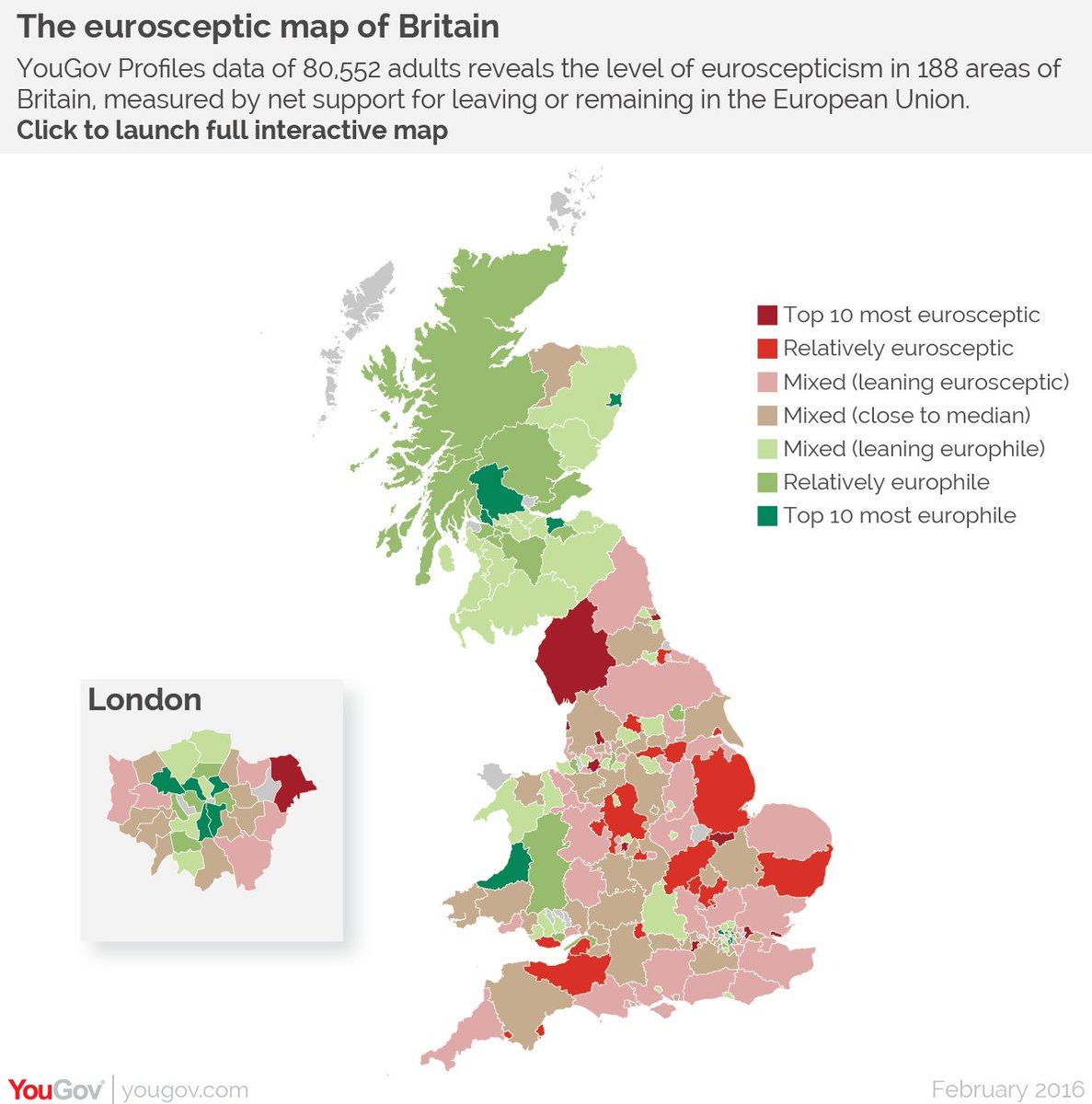Today the remaining EFTA States participate (to varying degrees) in the EU’s internal market, while arguably retaining national sovereignty and control over key policy areas such as fisheries and agriculture, foreign and security policy and justice and home affairs. However, Norway and Switzerland, though both members of EFTA, have very different relations with the EU. The Swiss-EU relationship is based on a series of bilateral agreements which,
according to the EU, are complex, unwieldy to manage and “have clearly reached their limits”. It can therefore be considered unlikely that the EU would be eager to duplicate such a system for the UK if it left the Union.
The EU has, on the other hand, been considerably more positive towards the European Economic Area (EEA) Agreement which allows the three other EFTA States, Norway, Iceland and Liechtenstein, to participate in the internal market. Access to the internal market, however, comes at a price as these states are required to adopt all EU legislation in relevant areas without access to the EU’s decision-making institutions. This includes provisions strictly related to the four freedoms (the free movement of goods, services, capital and persons) in addition to legislation in a variety of horizontal areas such as labour law, consumer protection, environmental policy, statistics and company law, which constitutes a large bulk of EU
acquis. The EEA Agreement allows some access to the Commission’s expert groups and comitology committees but no formal access to either the Parliament or the Council. The fact that the EFTA parties to the EEA Agreement do not have a seat at the table means that their impact is undoubtedly limited.
The EEA does contain various clauses to formally protect the EFTA States against loss of sovereignty. For example, EU acts do not automatically become part of the EEA Agreement or the EFTA states’ national legal orders. Nevertheless, refusal to adopt EU acts could lead to a partial suspension of the EEA Agreement and so this is not generally considered a viable option. Indeed, almost two decades of experience has shown that unwanted EU legislation can be delayed, but not thwarted. Thus there are indications that the EEA functions as a supranational agreement in practice. Some might even go so far as to argue that in practice the EEA Agreement involves a greater loss of autonomy than EU membership.
It is true that the EEA/EFTA states have generally found that the benefits of the EEA Agreement outweigh the costs. However, lack of access to the EU’s decision-making institutions would arguably be a much larger price to pay for the UK due to its size and international standing. The UK is one of the EU’s largest member states. It has the resources to participate actively in all policy areas and it is an important actor when it comes to coalition building and Qualified Majority Voting within the EU. Losing access to the decision-making institutions, while still having to adopt EU legislation, would therefore be a substantial blow. True, if the UK did join the EFTA pillar of the EEA Agreement, the relationship between the EU and EFTA would become slightly less asymmetrical. Nonetheless, the EEA Agreement, at least in its current form, is very much a one-way street whereby the EFTA states follow the EU’s lead. Taking such a subordinate role would undoubtedly be difficult for the UK.


